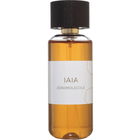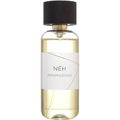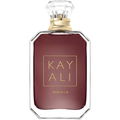Basically, it's absurd: butter, caramel, salt, vanilla. The epitome of all gourmand ideas - sweet, sugary, fatty, hot. One thinks of a Häagen-Dazs ice cream pot, with seductive names like "Macadamia Nut Brittle," "Vanilla Caramel Brownie," or "Salted Caramel Cheesecake," consumed by Bridget Jones in her red-and-white checkered pajamas, belting out "All by myself" into an imaginary microphone.
But - Italy? Italy??? Really? Bella Italia?
The Italian, as everyone knows, does not have breakfast. If at all, he eats a cookie. I bambini might have two. That's why such dry-cookie brands like "Il mulino bianco" could establish themselves so dominantly in the market - because it's about the size of the cookies, more than the taste. The cookies from the white mill are not large. Because the Italian does not have breakfast. And thus, the non-existent Italian breakfast has no significance in the European connoisseur context.
However, no one who has ever been out in an Italian city on a summer morning at six o'clock will ever forget the scent that wafts from the freshly opened bars into the warm morning air, while the Cameriere quickly sweeps the sidewalk before these beautiful, expensive perfume-scented carriers of precious Florentine fabric take a moment to look in: Caffè. Caffè ristretto. Caffè americano. Caffelatte. Cappuccino. Another caffè. And, yes - the indispensable latte macchiato. This strong, spicy, uniquely delicious scent that flows from the incredibly expensive, one-and-a-half-meter-wide espresso machines. The scent that from that moment on will be the benchmark and standard for every other coffee one will ever have.
An espresso, very rarely a cappuccino e basta in the morning. Simplicity. Discretion. Elegance. This has never had anything to do with the low-fat chocolate salted caramel macchiato that we are bombarded with here. All the more incomprehensible how an Italian perfume can evoke associations of such sweet indulgence in its own language. Perhaps no frothy coffee drink is meant - that was also my first thought, I agree with Sweetsmell75 -? Perhaps Zeromolecole is thinking of something pure, natural with a hint of sweetness? Freshly milked cow's milk straight from a South Tyrolean organic farm? Or even breast milk?
The scent is sweet, yet delicate. I can pick out all the components mentioned in the pyramid individually, but I'm not sure if these are all the components. The heavy, broad, creamy mass into which the scent - also visually perceptible as a light oil film on the skin - is embedded must be the butter. Within it, a sweet, delicious caramel note spreads, which emits only a tiny hint of salt, barely perceptible, but responsible for the spicy depth of this note. The scent is rounded off by the mild, light vanilla, which I do not perceive as synthetic at all. It is also rather restrained in my sample, entering into a balanced cooperation with the other scent notes, not dominant, not reminiscent of vanilla extract, more of vanilla sugar. No spice is hidden in this scent, nothing refined, which is why the salt is so important to give it the necessary depth, without which it would be one-dimensional and possibly also uninteresting. Unlike other gourmands in this direction - such as Salt Caramel or Lait de Biscuit - "Biancolatte" has none of the established popcorn-burnt almond scent of these perfumes. It completely lacks the note of burnt or baked, which further emphasizes the impression that this is more of a sweet, milky drink.
A profoundly shocking, world-famous poem by Paul Celan addresses the Holocaust and begins, as many know, with the unwieldy, cumbersome metaphor "black milk of dawn." These lines immediately come to mind when reading "Biancolatte," for it is precisely this lyrical opposition of "black" and "milk" that is so consciously negated in "Biancolatte." The scent name plays with the definition of milk, which has a harmonizing effect: white. Soft. Velvety. Pure. Innocent. A drink for children. Sweet milk for little sweet tooths. I think one must completely open oneself to this scent message if one wants to test "Biancolatte." One should not approach the scent with the standards of an adult, nor expect an adult fragrance that can respond to adult sensibilities. Rather, one must be clear about this: "Biancolatte" is not a children's scent in terms of price. But it is a scent for the completely childlike, soft, tender moments in life. Moments without intellectual conversations, without high-minded considerations. Without stress, without time pressure, without important appointments. A scent only for the few precious moments when one becomes a child again and enjoys sipping hot, sweet milk. In a bathrobe on the sofa, just before going to bed. Thus, the thought of Bridget Jones somehow still prevails.
Updated on 01/04/2020









 Vanilla
Vanilla Caramel
Caramel Butter
Butter Salt
Salt
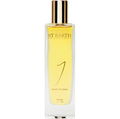










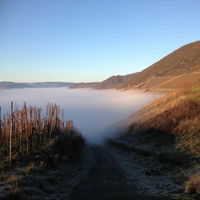

 Myrtillajus
Myrtillajus Uennikatze
Uennikatze Rieke2021
Rieke2021 Sweetsmell75
Sweetsmell75 Scarlett
Scarlett Ergoproxy
Ergoproxy Achilles
Achilles CandyScent
CandyScent Christacita
Christacita Whiteflowers
Whiteflowers







